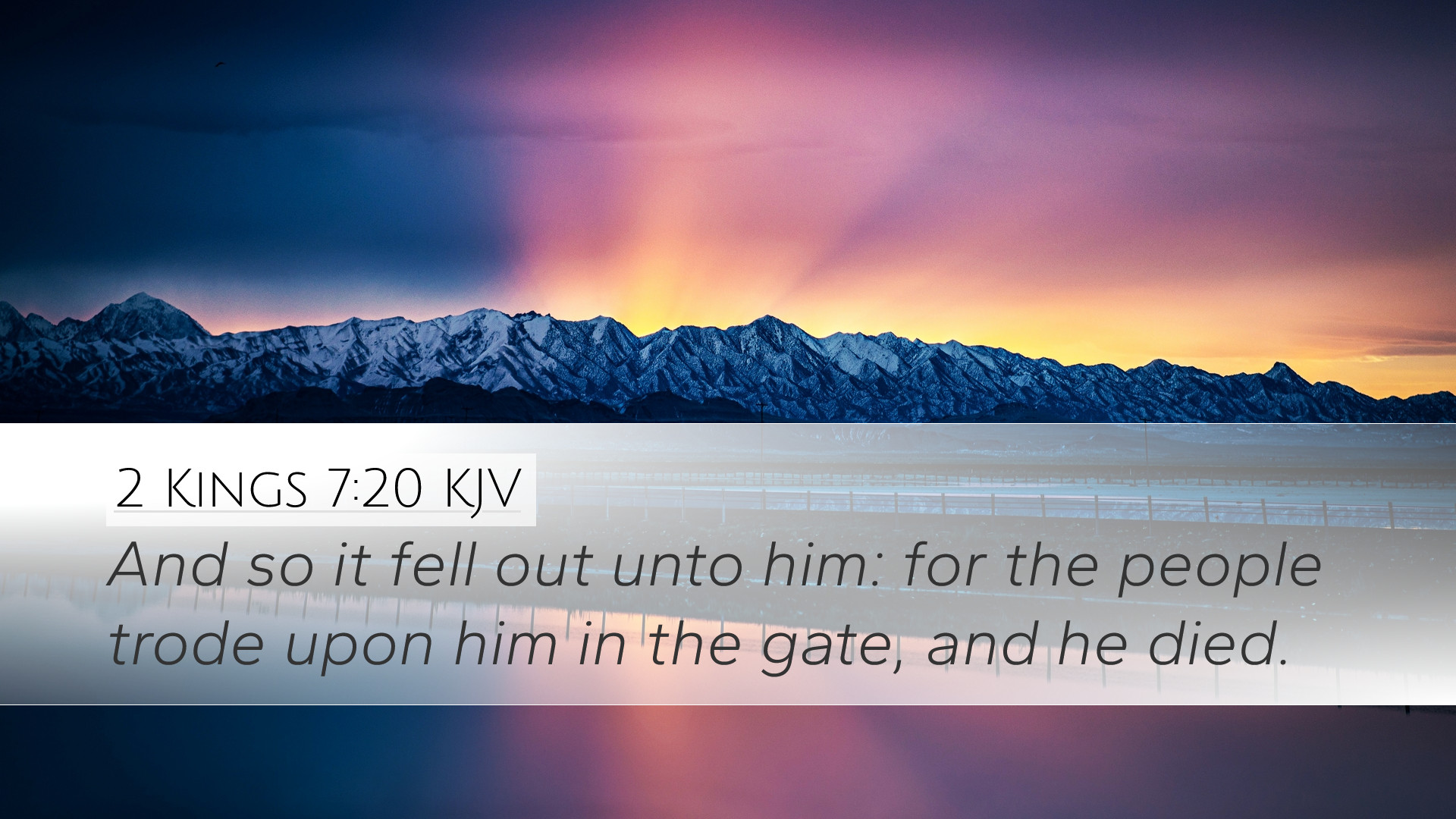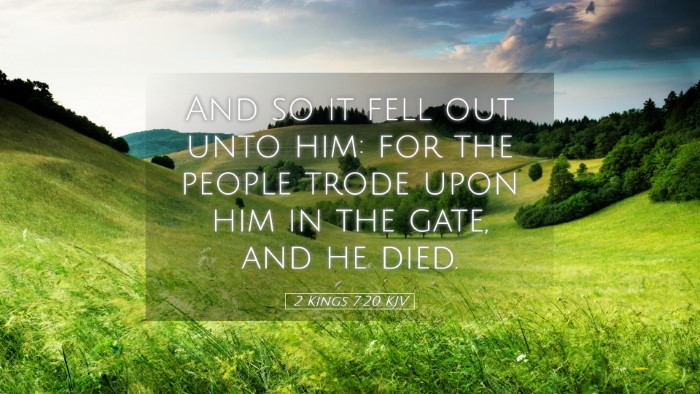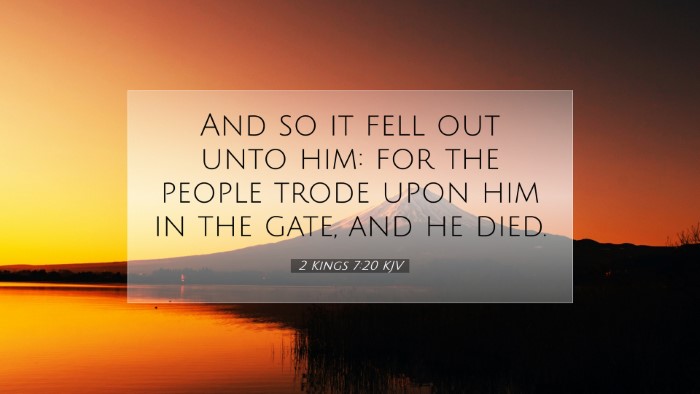Old Testament
Genesis Exodus Leviticus Numbers Deuteronomy Joshua Judges Ruth 1 Samuel 2 Samuel 1 Kings 2 Kings 1 Chronicles 2 Chronicles Ezra Nehemiah Esther Job Psalms Proverbs Ecclesiastes Song of Solomon Isaiah Jeremiah Lamentations Ezekiel Daniel Hosea Joel Amos Obadiah Jonah Micah Nahum Habakkuk Zephaniah Haggai Zechariah Malachi2 Kings 7:20
2 Kings 7:20 KJV
And so it fell out unto him: for the people trode upon him in the gate, and he died.
2 Kings 7:20 Bible Commentary
Commentary on 2 Kings 7:20
Verse Reference: 2 Kings 7:20 - "And so it fell out unto him: for the people trode upon him in the gate, and he died." (KJV)
Contextual Overview
This verse concludes the narrative concerning the siege of Samaria and the miraculous provision of food from the Syrian camp. The backdrop of this incident is one of desperation, famine, and prophetic fulfillment which serves as a crucial lesson regarding faith and the consequences of unbelief.
The Thematic Significance
The events leading to this verse highlight the severe consequences of skepticism in the face of divine promise. The officer who doubted Elisha's prophecy regarding the sudden abundance of food tenfold embodies a genuine struggle between faith and reason.
- Desperation and Famine: The city of Samaria was engulfed in famine. The people's conditions reflected a lack of hope, which is a significant theme throughout the book of Kings.
- Prophetic Declaration: Elisha assures the king that food will be abundant come the very next day against the backdrop of hopelessness.
- Unbelief Leading to Tragedy: The officer's scoffing response demonstrates a profound irony; his lack of faith culminates in his tragic end—literally crushed by the people who rush to the gates amidst the newly arrived provisions.
Commentaries Synthesis
Matthew Henry's Commentary
Matthew Henry emphasizes the danger of doubt and the critical role of divine prophecy. He notes that God's word through Elisha should have provided hope, yet the officer's skepticism determines his fate. This serves as a stark reminder of the perils of failing to trust in God's promises, especially in seemingly impossible situations.
Albert Barnes' Notes
Barnes provides insight into the societal implications of the famine and the collective despair of Samaria. He elucidates the chaos that ensued when the news of provision reached the hungry. The disdainful treatment of the officer by the people illustrates how his scoffing ultimately led to a judgment befitting his lack of faith. Barnes highlights the dual nature of God’s work—both mercy and judgment are at play.
Adam Clarke's Commentary
Clarke examines the historical context surrounding the siege of Samaria and the depth of the officer's tragic end. He notes that this verse serves as more than just a narrative closure; it is a forensic reminder that disbelief can result in fatal outcomes. Clarke also reflects on the greater spiritual lesson: any disregard for prophetic words can lead to dire consequences, as seen in this officer's life.
Lessons for Theologians and Scholars
- The Nature of Prophetic Authority: This incident demonstrates the authority of prophetic voices in Israel and their crucial role in guiding the nation through crises.
- Faith versus Unbelief: The resultant deaths of the officer point to a broader theological theme prevalent throughout Scripture: the blessings associated with faith and the repercussions of disbelief.
- Social Dynamics During Crisis: The interaction illustrates how societal desperation can amplify tensions and lead to violence in communities faced with famine.
- God's Sovereignty in Crisis: This narrative is a testament to God’s power to provide, even in dire situations, while simultaneously underscoring the seriousness of faithlessness.
Conclusion
The cautionary tale encapsulated in 2 Kings 7:20 serves as a multifaceted lesson on faith, providence, and the consequences of skepticism. It is an invitation for pastors, students, theologians, and scholars alike to probe the depths of their own faith in the face of adversity and to consider the ramifications of doubt in a world that often mirrors the despair found in Samaria. The tragic demise of the officer remains a poignant reminder that God's word is trustworthy, and to disregard it is to court disaster.


